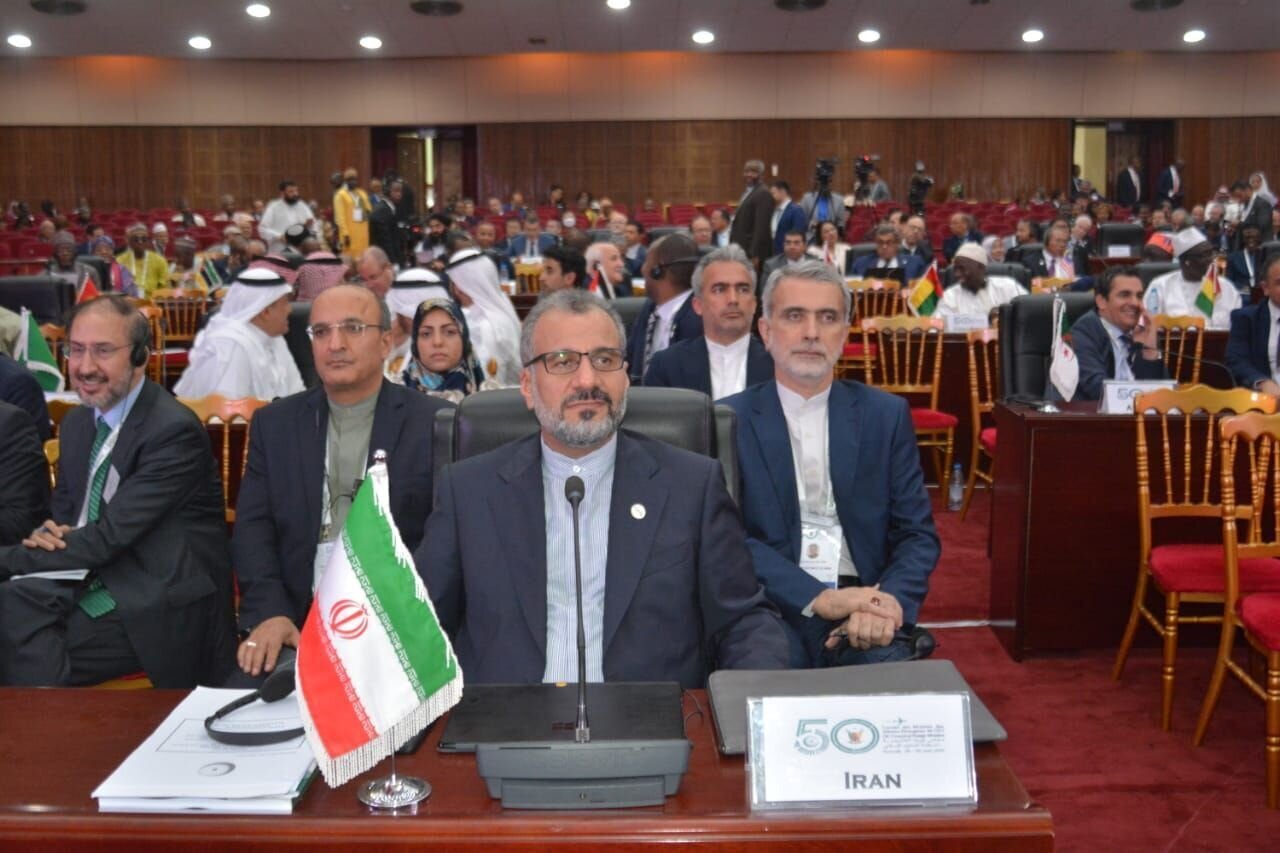Israeli regime primary obstacle to Islamic world’s stability: official

TEHRAN- The director general of the International Peace and Security Department at the Iranian Foreign Ministry has stated that the Zionist regime represents the primary barrier to achieving stability and sustainable development within the Islamic world and the broader region.
Asadullah Eshragh-Jahromi commented during the 50th session of the Council of Foreign Ministers of the Organization of Islamic Cooperation (OIC), held in Yaoundé, Cameroon. He emphasized that the destabilizing actions of the Israeli regime significantly hindered cooperation among Islamic nations. The OIC's 50th session occurred on Thursday and Friday, focusing on the “Development of transport and communications infrastructure within the OIC framework, a key tool in the fight against poverty and insecurity.”
Eshragh-Jahromi expressed profound concern and condemned the aggressive and inhumane actions perpetrated by the Zionist regime against the Palestinian people in the Gaza Strip over the past eleven months. He also denounced the recent assassination of the Hamas leader in Tehran, urging the international community and the OIC to take a firm stance against war crimes, crimes against humanity, and genocide, and to hold the Zionist regime accountable for its actions. Additionally, the representative from the Islamic Republic highlighted the importance of addressing the underlying causes of insecurity and crises in West Asia, asserting that the regime's policies obstruct unity among OIC member states.
Eshragh-Jahromi also criticized the economic sanctions imposed on several developing countries, which violate international law, calling for their rejection by all nations. Eshragh-Jahromi emphasized that U.S. sanctions undermine economic stability and pose a considerable obstacle to the development and availability of vital resources and technology for Islamic countries. The Council of Foreign Ministers of the Organization of Islamic Cooperation (OIC) serves as a permanent entity within the OIC framework, comprising the foreign ministers from its 57 member states. This Council ranks as the second-highest decision-making authority in the OIC and convenes annually to deliberate and resolve matters significant to the Muslim community.
The Council focuses on various issues, including political, economic, and social collaboration among OIC member states, while also fostering dialogue and partnerships with non-OIC countries and international organizations. Before this session, the seventeenth session of the Council in 1992 led to the formation of the Al-Quds Committee, aimed at safeguarding the holy city of Jerusalem along with its Muslim and Christian sacred sites. Additionally, during the twenty-seventh session in 2016, the OIC reiterated its dedication to the inalienable rights of the Palestinian people, emphasizing their entitlement to self-determination and independence, with East Jerusalem designated as their capital.
Leave a Comment